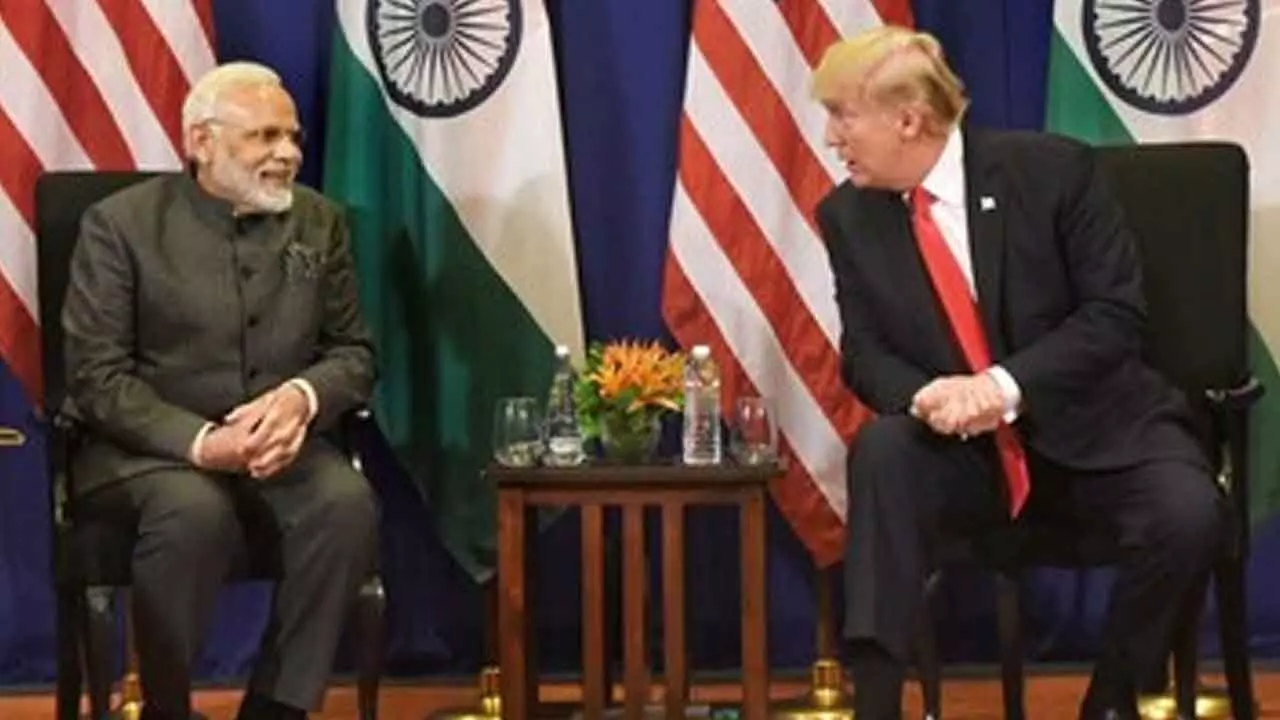India Will Be On Sound Footing Comparatively In Trump’s Second Term
India Will Be On Sound Footing Comparatively In Trump’s Second Term

Donald Trump will on January 20 be sworn in as the 47th president of the United States, which incidentally will mark his second term in the White House. The man, who made one of the most astounding political comebacks in American history, has invited several foreign leaders to the swearing-in ceremony. Meanwhile, his second innings will dominate the global market mood this month. On their part, market watchers will be closely following his policies.
Experts like VT Markets feel that a sec-ond Trump administration could significantly reshape Asia’s economic landscape, par-ticularly through its trade policies and protectionism. Trump is expected to continue prioritising American interests with tariffs and trade agreements. Trump's "decou-pling" from China could lead to shifts in production and sourcing strategies, with Southeast Asia—especially Indonesia, Malaysia, and Thailand—potentially benefiting from increased foreign investment as companies diversify their supply chains. India, Vietnam, and Indonesia stand to gain as companies shift operations from China to take advantage of the cost-effective factor. India, as a growing manufacturing hub, could see accelerated growth if trade barriers with China persist.
Moreover, China and Japan, which depend on US exports—may struggle under con-tinued tariffs and protectionist measures. Meanwhile, Asia's energy transition to re-newables could be complicated by Trump's fossil fuel-friendly stance, which may tem-porarily benefit oil companies like Exxon Mobil but hinder broader green energy ef-forts. India’s stock markets had a topsy-turvy 2024, where a string of events caused bouts of volatility in the latter part of the calendar year. From the Lok Sabha elec-tions to Donald Trump’s victory, from simmering tensions between Iran and Israel to foreign investors’ mammoth selling of Indian equities, the stock markets saw it all during the year.
Going ahead, analysts believe domestic equity markets may continue to witness market consolidation, at least in the first half of 2025, on the back of vari-ous domestic and global economic events. Any significant shift in US policies could have ripple effects on the Indian equity market, given the intertwined nature of global economies. A recent Reuters’ report pointed out that overseas investors turned net sellers of Asian equities in 2024, primarily due to a surge in selling in the last quarter amid concerns that President-elect Trump's trade policies might hit Asian economies.
They had invested $14.67 billion in the first three quarters, encouraged by expecta-tions of Federal Reserve easing and regional growth. But they later shifted to acceler-ated selling, hit by a stronger dollar and higher US yields. It is widely believed that in the tech sector, Trump’s immigration policies could impact Asia’s access to skilled la-bour.
Stricter US immigration laws may lead to more tech talent staying in Asia, which could boost regional innovation hubs in India, Singapore and South Korea. Asia's economies, in general, may face volatility due to Trump's trade wars and tariffs, but some sectors—like tech and defense could thrive. Investors may turn to higher-reward opportunities like smaller fintech startups and crypto market and shun sec-tors exposed to tariffs and global trade disruptions. The outlook is that there could be new opportunities for Southeast Asia and emerging markets but create risks for ex-port-driven economies and industries reliant on international talent.

